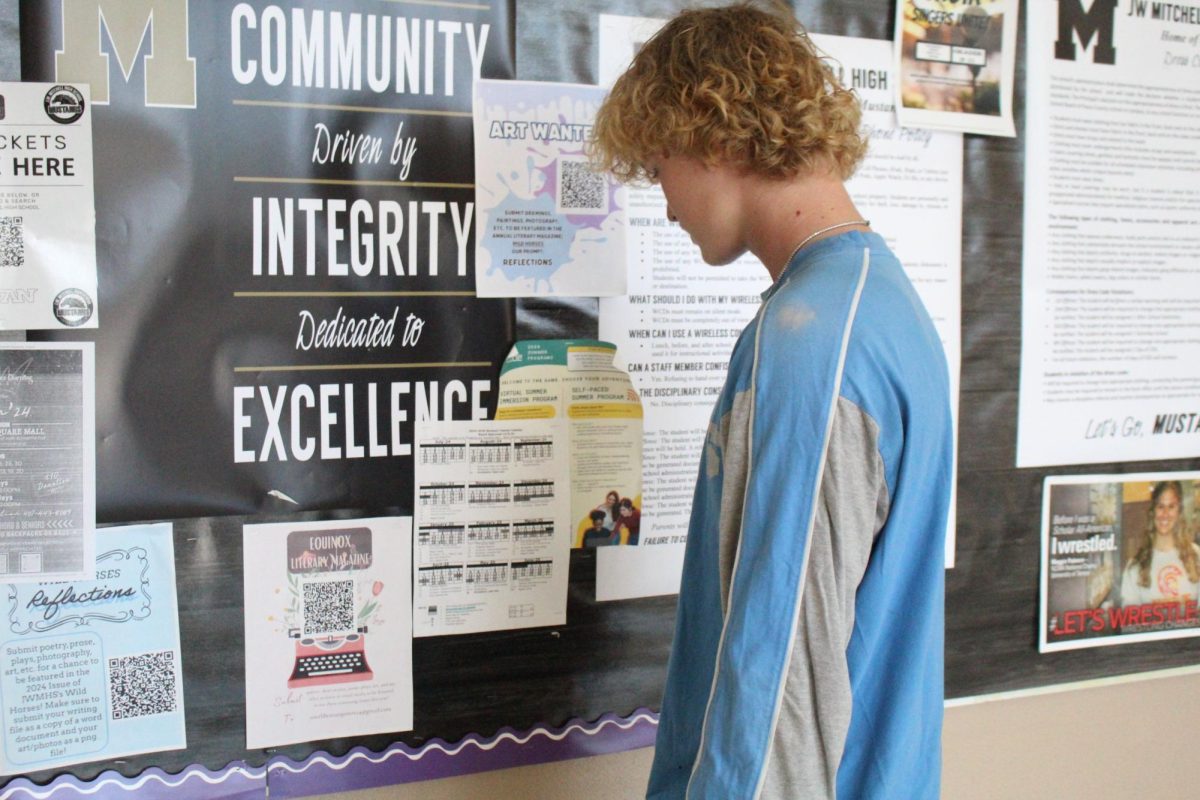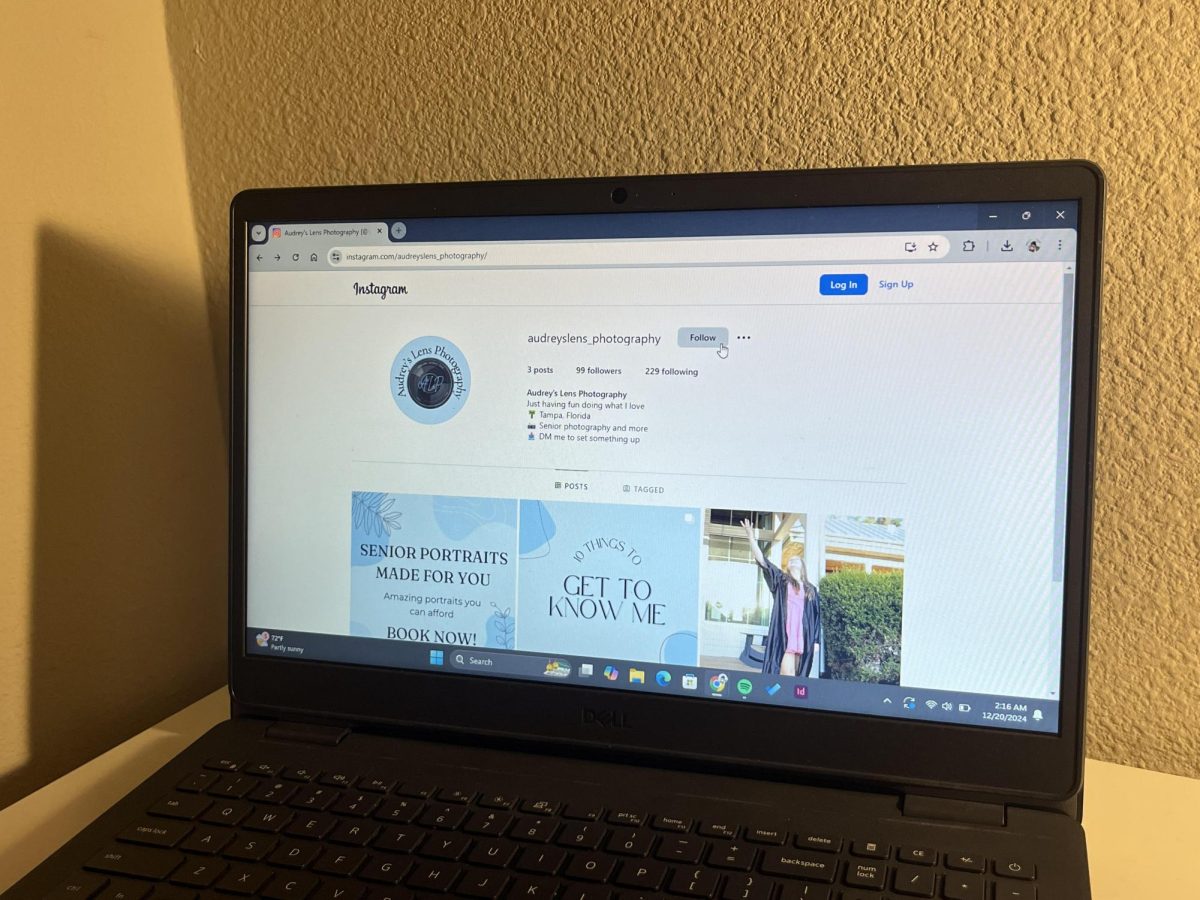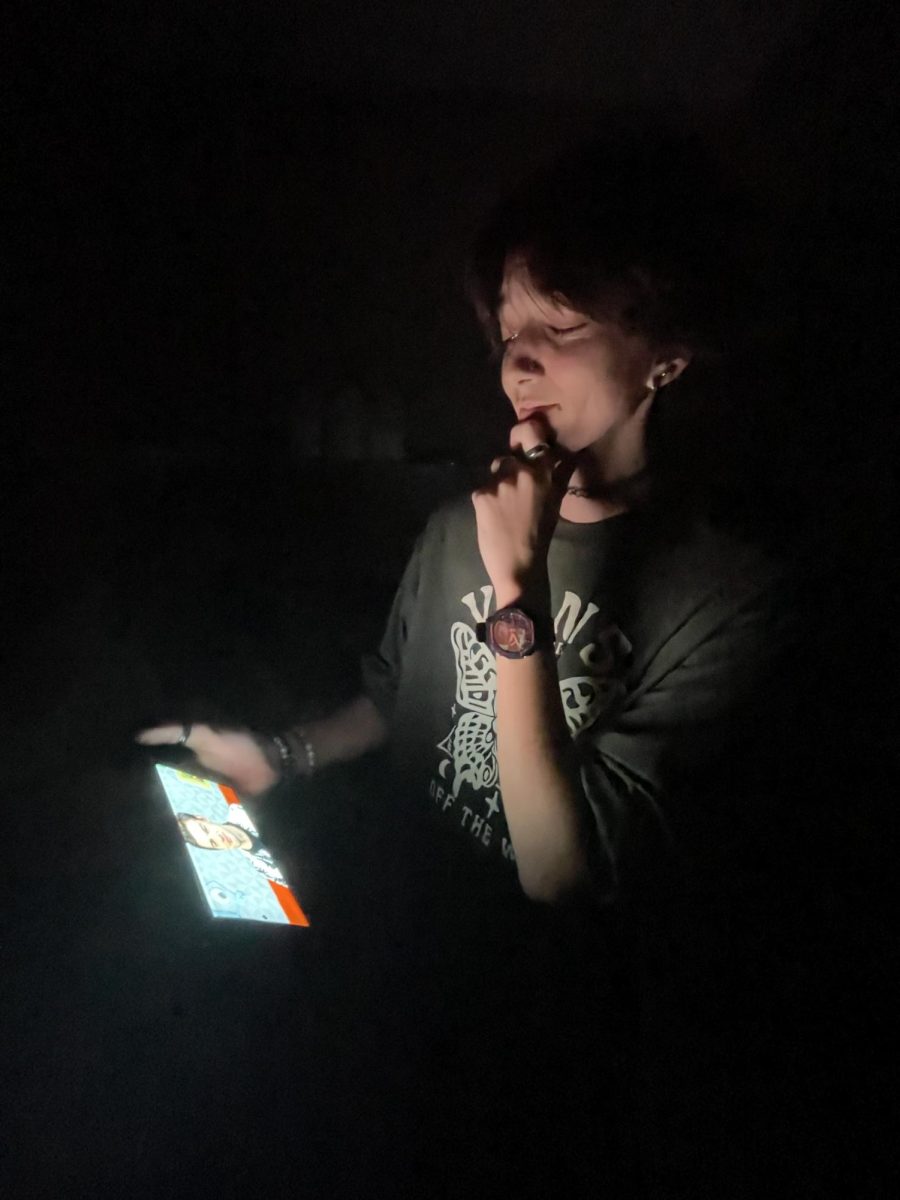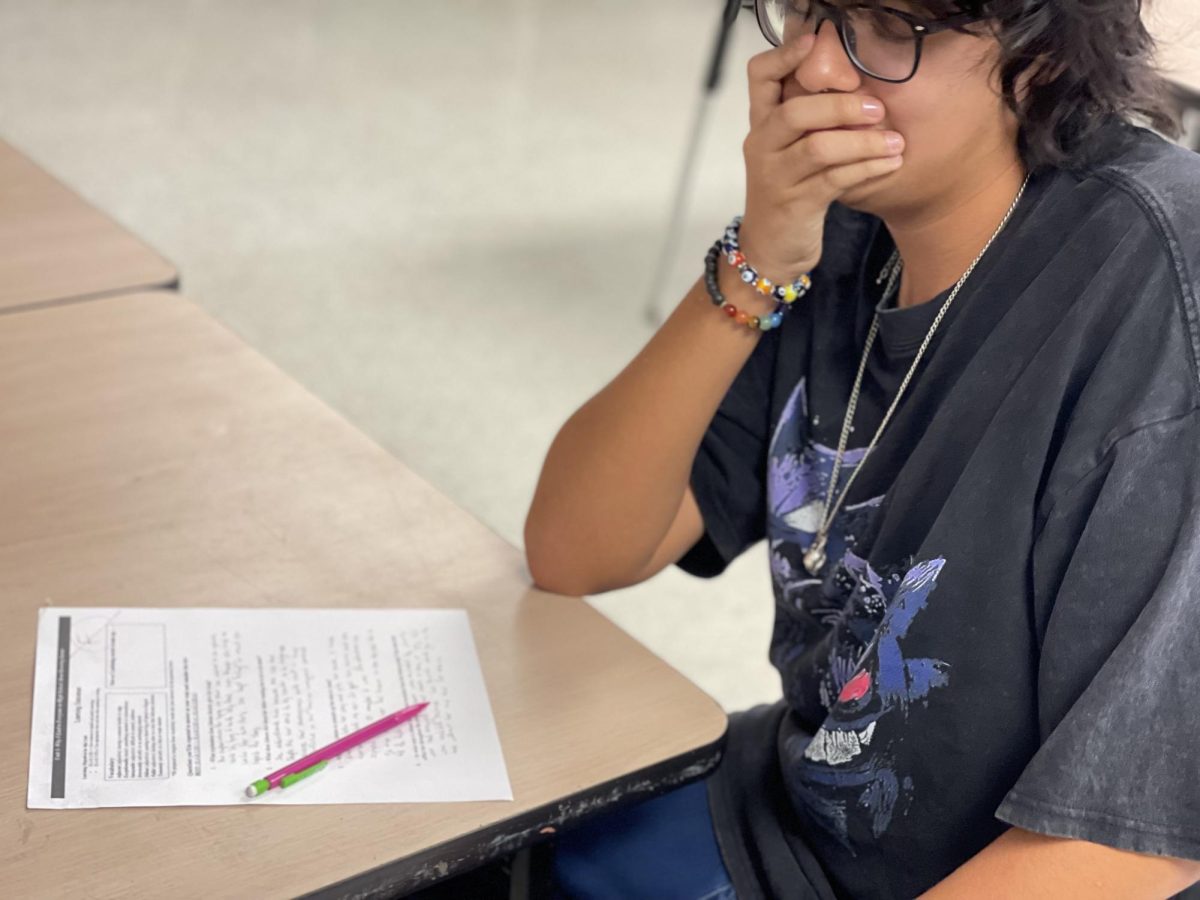As school continues and second semester assignments start to pile up, students are beginning to find the work overwhelming and mentally exhausting. According to Psychcentral.com, “Burnout refers to the feeling of mental and physical exhaustion due to prolonged stress, such as at work.” Olivia Wheatcraft (’25) faces the effects of Burnout when juggling classes and an extensive list of extracurriculars.
“I’m in DE Comp, DE Math, AP Chem and APUSH, Band and Yearbook. I’m also founder and president of WISTEM (Women in Stem), Secretary of Interact, in Model UN, Mu Alpha Theta, Hosa, Rho Kappa, NHS, and an outreach officer of GEM (Global Empowerment Movement Club)” Wheatcraft said.
Psychcentral.com published an in-depth article about the effects of burnout, stating that it is most commonly associated with work, school, and other stressful environments. It most prominently results in a lack of motivation to do work and self-dismissal of personal needs like sleep, exercise, and eating.
“Sometimes finding the motivation to get up and do the work is really hard,” Wheatcraft also said.
Here, the average student gets home after three o’clock because 7th period ends at 2:52 PM. Most students have around two to three hours of work a night, leaving them only a few hours to relax and eat dinner or hang out with friends. This estimate doesn’t even include hours that have to be dedicated to community service or club events. Rebecca Youssef (’25) knows this schedule all too well, being in mostly AP classes and Mu Alpha Theta, HOSA, and Science NHS.
“I have about two to three hours of homework every single night,” Youssef said.
Eating healthy and maintaining a decent sleep schedule can also provide students with a great deal of much-needed energy so they’re ready to take on their assignments with determination. Lucy Breitenbach is the class of 2024 Outstanding Senior and President of Model UN, among other accomplishments. On top of her academic dedication, she also balances a job as an assistant soccer coach on weekends.
“I work out, eat healthy, journal, and make sure to do activities I enjoy. I also make sure to get at least eight hours of sleep a night,” Breitenbach said.
Having a hobby, working out, journaling, and maintaining a healthy social life are all effective ways that students relieve the stress that can be caused by school.
“I hang out with my friends, it makes me feel relaxed. Being with them makes me feel fulfilled and I enjoy it a lot when I have the time to go out.” Wheatcraft said.
Organizing a complicated work schedule can be a difficult task, and many students use electronic calendars on their phones because it will notify them when assignments and tests are coming up and they can better plan their homework and study schedules.
Victoria Tubens (’26) is in various clubs, including Model UN and Spanish Honors Society.
“I have a physical planner and one on my phone that notifies me whenever I have assignments to turn in,” Tubens said.
Using a calendar or to-do list can greatly assist a student in need of a more organized schedule. This in turn can help them stay on top of their assignments so they get done on time. The cycle of burnout students face can be detrimental to their grades, so taking measures to prevent it from happening early on can be extremely helpful to maintaining a healthy mindset when school is in session.

















![Colin McRaven ('24) prepares to pitch the ball to an Anclote batter during the Varsity pre-season game."I like striking people out, since it's fun. The game against Anclote was pretty easy because they were less talented than our team and [I think] we were better than them in every aspect," Colin McRaven ('24) said.](https://jwmhshoofbeat.com/wp-content/uploads/2024/03/IMG_1538-1200x928.jpg)







![Meryam Ghobrial’s (’27) Spotify Wrapped provided "genre" for the month of April. “Some other people got the same [AI generated] genre name for different artists of the same genre” Ghobrial said. Photo provided by Meryam Ghobrial.](https://jwmhshoofbeat.com/wp-content/uploads/2025/02/unnamed-555x1200.png)






